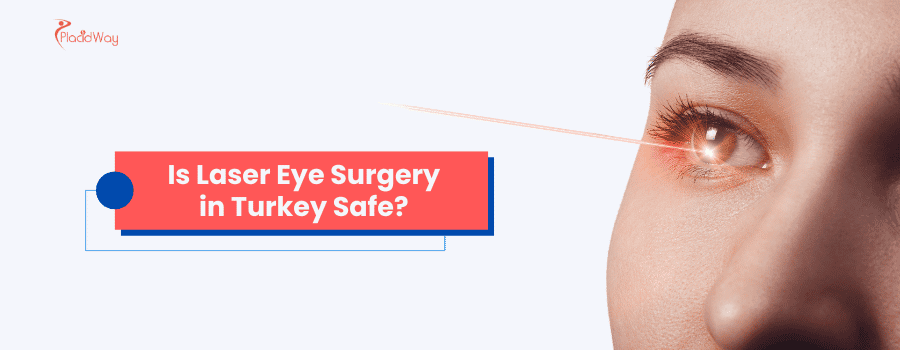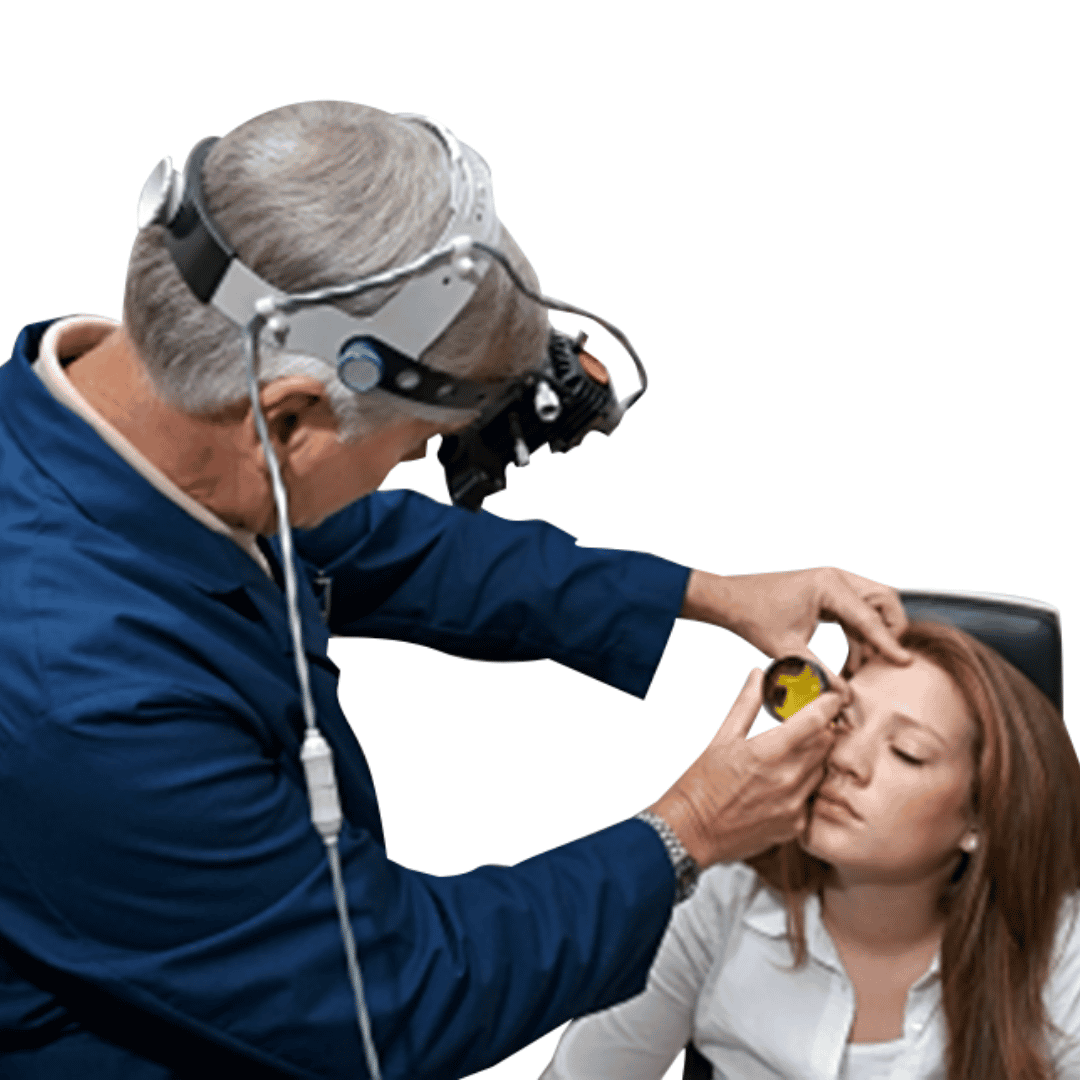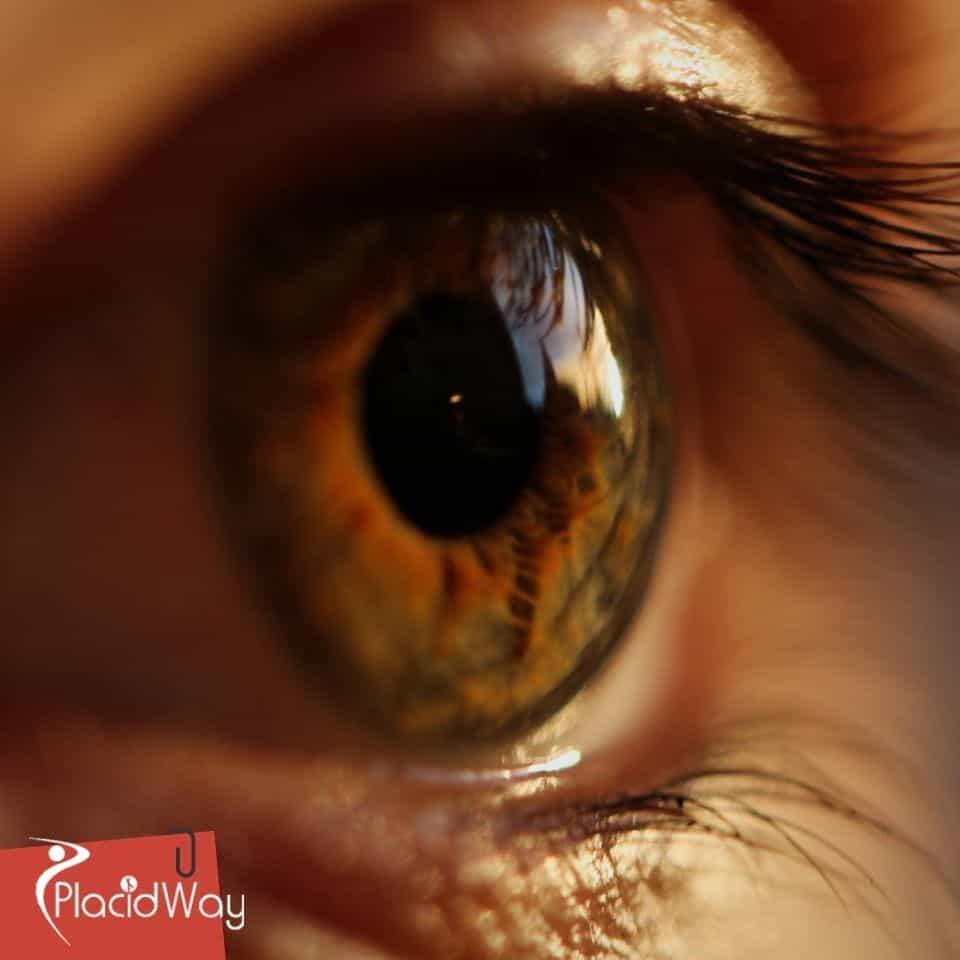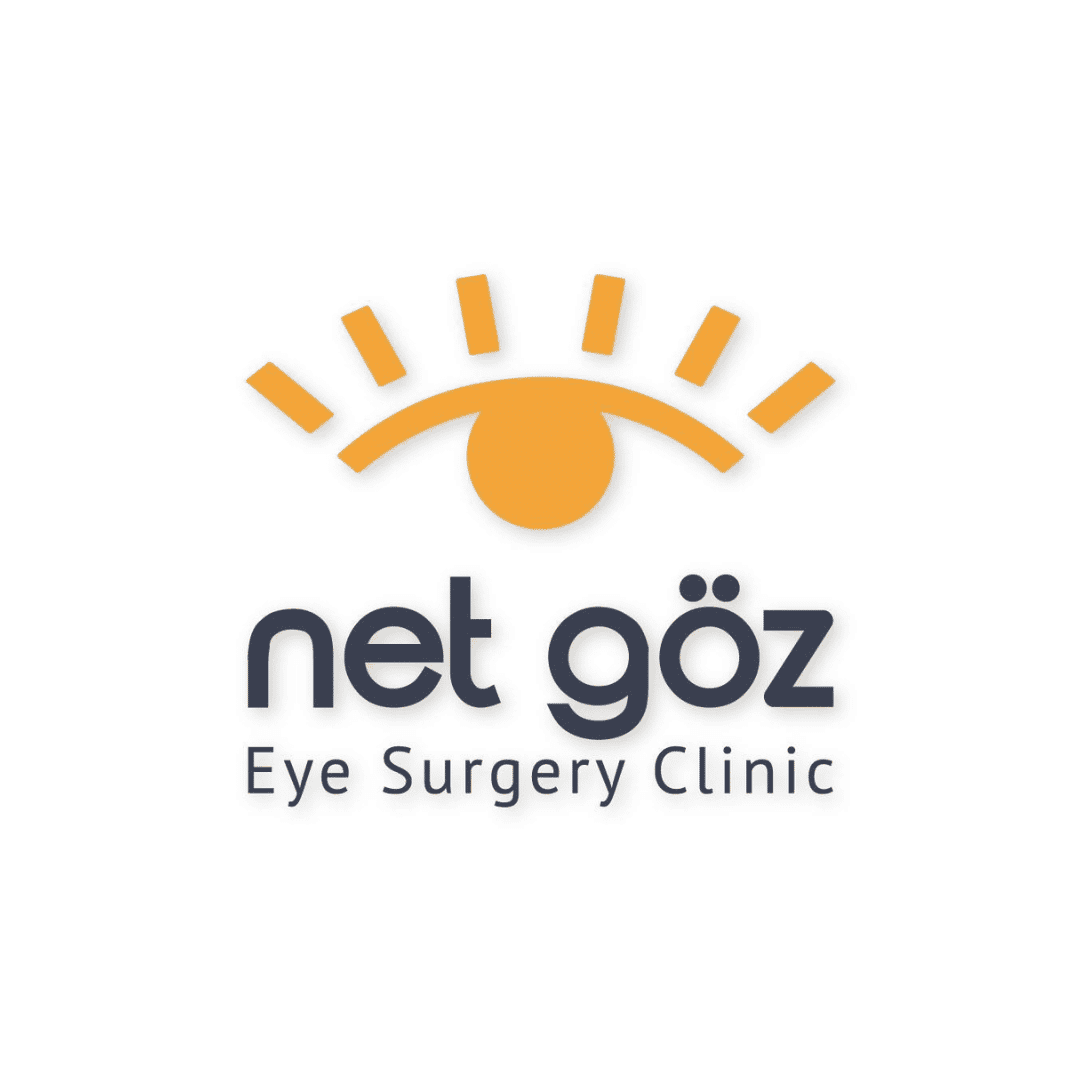How Safe Is Laser Eye Surgery in Turkey?

Are you tired of reaching for your glasses the moment you wake up? Or perhaps you're done with the daily ritual of putting in and taking out contact lenses. If clear, unaided vision sounds like a dream, you've likely considered laser eye surgery. As this life-changing procedure has grown in popularity, so has the trend of medical tourism. Turkey, in particular, has emerged as a global hub for high-quality, affordable medical treatments, with vision correction being one of its most sought-after services. But the big question on everyone's mind is: Is laser eye surgery in Turkey safe?
The short answer is a resounding yes, but with an important condition: your safety and success depend heavily on the research you do and the clinic you choose. Turkey is home to a multitude of world-class hospitals and specialized eye clinics that are accredited by international bodies like JCI (Joint Commission International). These facilities are staffed by highly skilled ophthalmologists who have often trained in Europe and the US, and they utilize the same, if not more advanced, laser technology as clinics in the West. The significant cost savings are due to the country's lower cost of living and operational expenses, not a compromise on quality or safety. This guide will walk you through everything you need to know, from the types of procedures available and their costs to the potential risks and how to ensure you have a safe and successful experience.
What Makes Turkey a Popular Destination for Laser Eye Surgery?
Turkey has strategically positioned itself as a leader in the medical tourism industry. For laser eye surgery, this reputation is built on several key pillars. Firstly, the quality of care is exceptionally high. Many Turkish ophthalmologists are internationally recognized and have extensive experience, performing thousands of successful surgeries. They operate in modern, clean facilities that rival the best in the world.
Secondly, the technology is top-tier. Turkish clinics invest heavily in the latest diagnostic and surgical equipment, such as Femto-LASIK and SMILE technologies, ensuring precise and safe outcomes. Finally, the value proposition is undeniable. Patients can save up to 70% on the cost of the procedure, even after factoring in travel and accommodation. This affordability, combined with the high standards of care, makes laser eye surgery in Turkey an incredibly attractive option for international patients.
What is the Cost of Laser Eye Surgery in Turkey?
One of the most compelling reasons people travel to Turkey for vision correction is the cost. While prices can vary, they are consistently much lower than in Western countries. It’s important to understand what influences the price to make an informed decision.
- Type of Procedure: Newer, more advanced techniques like ReLEx SMILE are generally more expensive than conventional LASIK or PRK.
- Clinic and Surgeon Reputation: Highly renowned clinics with celebrity surgeons may charge a premium for their expertise and proven track record.
- Technology: The specific laser platform used (e.g., Wavefront, Femtosecond laser) can affect the overall cost.
- Package Inclusions: Many clinics offer all-inclusive packages that cover the surgery, pre-operative tests, post-operative medications, hotel accommodation, and airport transfers, providing excellent value.
Here's a general comparison of expected costs:
| Procedure | Average Cost in Turkey (Both Eyes) | Average Cost in the US (Both Eyes) |
|---|---|---|
| LASIK | €1,400 - €1,900 | $4,000 - $5,500 |
| PRK / LASEK | €1,300 - €1,800 | $3,500 - $5,000 |
| ReLEx SMILE | €2,200 - €2,800 | $5,000 - $6,500 |
What Are the Success Rates for LASIK in Turkey?
Success in laser eye surgery is measured by visual acuity (how clearly you can see) and patient satisfaction. Turkish clinics consistently report outstanding results. The high success rates are attributable to the combination of surgeon expertise, meticulous pre-operative screening to ensure candidacy, and the use of precise, computer-guided laser technology.
It's crucial to have realistic expectations. While the vast majority of patients achieve their desired outcome, a small percentage may experience under-correction or over-correction, which can often be addressed with a follow-up enhancement procedure. A reputable clinic will be transparent about their success rates and what you can expect from your specific case.
How Do I Choose a Safe Clinic for Laser Eye Surgery in Turkey?
Your safety is paramount. With so many clinics to choose from, doing your due diligence is essential. Here are the key factors to investigate:
- Accreditation: Look for clinics with international accreditations. A JCI accreditation is a gold standard, indicating the facility meets rigorous global benchmarks for patient safety and quality of care.
- Surgeon's Credentials: Research the ophthalmologist who will perform your surgery. Where did they train? How many procedures have they performed? Are they a member of reputable ophthalmology societies?
- Technology and Equipment: A top-tier clinic will openly advertise the advanced technology they use. Ensure their lasers are modern and well-maintained.
- Patient Testimonials and Reviews: Look for reviews on independent platforms, not just the clinic's website. Watch video testimonials and see what past patients say about their experience, from the initial consultation to the aftercare.
- Communication: The clinic should provide clear, comprehensive information in your language. A dedicated international patient coordinator is a great sign.
What Are the Different Types of Laser Eye Surgery Offered?
The best procedure for you depends on your prescription, corneal thickness, and lifestyle. A thorough pre-operative exam will determine your candidacy for each.
- LASIK (Laser-Assisted In Situ Keratomileusis): The most popular choice. A thin flap is created on the cornea, the underlying tissue is reshaped with a laser, and the flap is repositioned. It's known for its rapid recovery and minimal discomfort.
- PRK (Photorefractive Keratectomy): The original laser eye surgery. Instead of creating a flap, the cornea's outer layer (epithelium) is gently removed before the laser reshapes the cornea. The epithelium grows back within a few days. PRK is often recommended for patients with thinner corneas or those in contact sports. Recovery is slower than with LASIK.
- ReLEx SMILE (Small Incision Lenticule Extraction): A minimally invasive, flapless procedure. A femtosecond laser creates a tiny, lens-shaped piece of tissue (lenticule) within the cornea, which is then removed through a small incision. This technique offers the quick recovery of LASIK with the corneal stability of PRK.
What Are the Risks and Potential Side Effects?
No surgery is completely without risk, but the complication rate for laser eye surgery is remarkably low. Most side effects are mild and temporary. Being aware of them is part of making an informed decision.
Common temporary side effects include:
- Dry Eyes: The most common side effect, which can be managed with lubricating eye drops and typically improves over a few weeks to months.
- Glare, Halos, or Starbursts: You may notice these around lights, especially at night. This effect usually diminishes as your eyes heal.
- Fluctuating Vision: Your vision may be slightly blurry or fluctuate during the initial healing period.
More significant but rare risks include infection, flap complications (with LASIK), and under- or over-correction. Choosing a highly experienced surgeon and a sterile clinical environment, and strictly following post-operative care instructions, are the best ways to minimize these risks.
What Does the Laser Eye Surgery Process in Turkey Involve?
Clinics specializing in medical tourism have a streamlined process for international patients.
- Initial Consultation: You'll start with a free online consultation, providing your current eye prescription and medical history.
- Travel and Arrival: Once you book, the clinic often helps arrange transfers and accommodation. You'll typically need to stay in Turkey for 3 to 5 days.
- Pre-Operative Exam: On your first day, you'll undergo a comprehensive eye examination lasting several hours. This is the most critical step to confirm your candidacy and map your eyes for surgery.
- The Surgery: The procedure itself is very quick, usually lasting only 10-15 minutes for both eyes. You'll be awake, but your eyes will be numbed with anesthetic drops.
- Post-Operative Care: You'll have a follow-up appointment the day after surgery to check your vision and healing. You'll be given a set of eye drops and instructions to follow for the next few weeks.
Who is a Good Candidate for Laser Eye Surgery?
Not everyone is suitable for laser eye surgery. A thorough screening process is vital for safety and success. Key requirements include:
- Age: You must be at least 18, and preferably in your early 20s, to ensure your prescription has stabilized.
- Stable Vision: Your glasses or contact lens prescription should not have changed significantly in the last 1-2 years.
- Good General and Eye Health: You should not have any uncontrolled autoimmune diseases, or eye conditions like severe dry eye syndrome, keratoconus, glaucoma, or cataracts.
- Corneal Thickness: Your cornea must be thick enough to allow for safe reshaping.
- Pregnancy: The procedure is not recommended for women who are pregnant or breastfeeding, as hormonal changes can affect vision.
Ready to see the world with crystal-clear vision? Your journey to a life without glasses could start today. Contact PlacidWay now.


.png)




.png)

.png)







Share this listing